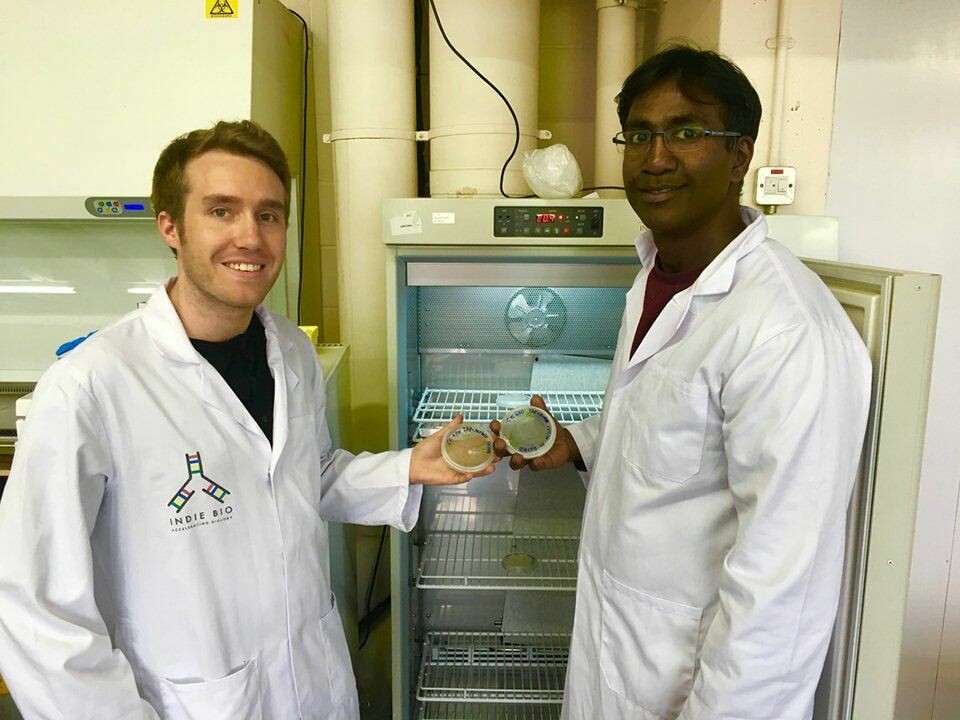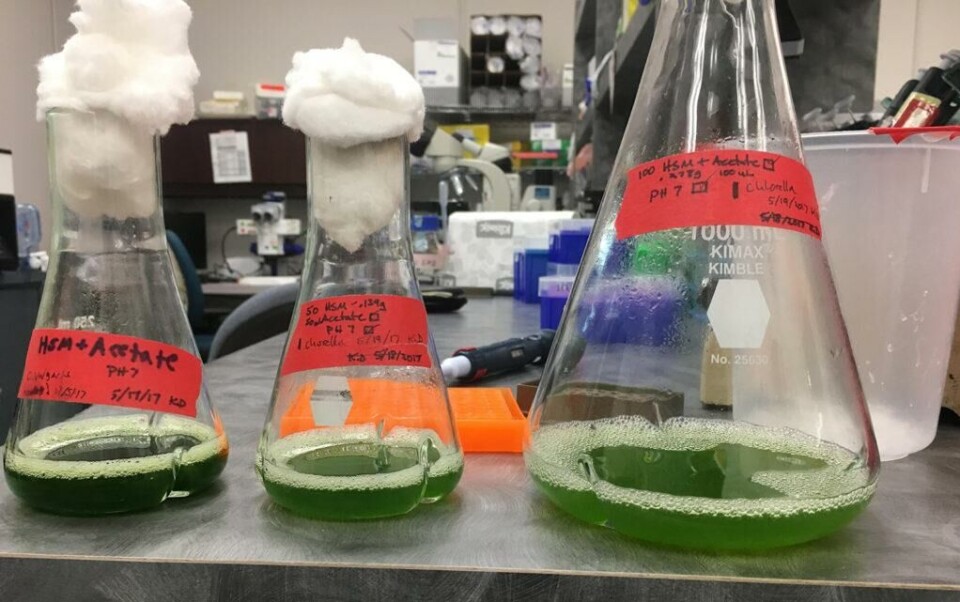
Microalgae 'trained' to grow and carry fish vaccines
A start-up biotechnology company is aiming to provide oral vaccinations for salmon and other fish by altering the DNA of microalgae.
MicroSynbiotiX’s technology is built on using recombinant DNA technology to integrate vaccine DNA into microalgae DNA directly, reports the Global Aquaculture Alliance. Once the vaccine information is integrated into the strand, the microalgae itself has access to a new set of data that it can use to manufacture the vaccine, producing it within the microalgae biomass.

In this way, the algae is effectively being trained to produce a specific vaccine and keep it safe within its own cells, says the GAA report. From there, MicroSynbiotiX further grows each particular clone of microalgae in large bioreactors, allowing the progenies of the original clone to grow into large concentrations of biomass, all encapsulated with the vaccine DNA. The microalgae is then harvested, freeze-dried and then transported to where it is needed for use.
Reduce stock losses
MicroSynbiotiX is based in Cork, Ireland, and has a research and development facility in San Diego, in the United States. The company, which presented at the Global Aquaculture Alliance’s GOAL conference in Dublin last month, has raised more than €1 million in venture capital funding.
“Our goal is to reduce the stock losses in the aquaculture industry,” said chief executive Simon Porphy, a biochemical engineer. “The industry is facing $10 billion worth of stock losses each year, and also uses a lot of antibiotics and anti-microbial compounds, which are not sustainable in the long run.”
Although there is very little antibiotic use in Scotland and Norway, Chile still uses antibiotics to tackle salmon rickettsial syndrome (SRS) - for which there is currently no effective vaccine - but is making efforts to cut down on use of the drugs.
New delivery mechanisms
The MicroSynbiotiX solution involves new delivery mechanisms for bacterial vaccines that can be used for a variety of different fish species, thereby reducing the need for antibiotics and making disease management simpler and more sustainable, said Porphy.
The company's efforts are currently focused on shrimp, for which microalgae is a natural part of the diet and for which there is no oral delivery strategy currently available. Porphy says the company plans to extend to other species as it scales up.
“We will be able to develop bacterial vaccines, not just for salmon, but low-value fish stocks like tilapia,” Porphy told the GAA. “As a result, they would be able to maintain their water quality in the farms much better than by using antibiotics. Excess use of antibiotics can lead to poor water quality, which in turn can lead to disease outbreaks, as poor water quality would put a lot of stress on the immunology of the fish.”























































